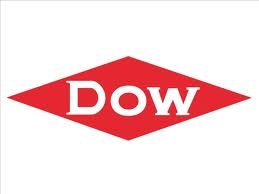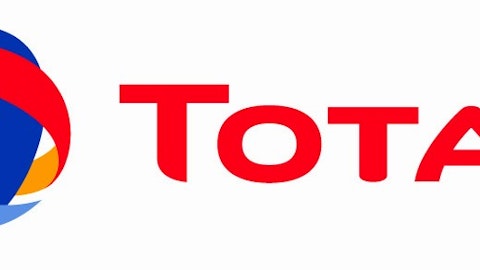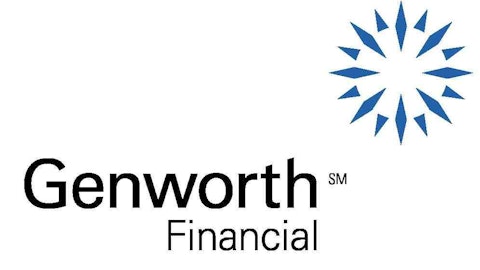It’s not that U.S. chemical companies are against liquefied natural gas (LNG) exports. It’s just that it is really hard for them to pretend not to be against them.
The largest U.S. chemical companies have issued statements that they want to see a “balanced approach” to exports- which is a polite way to say they don’t mind the exports, as long as exports don’t raise the price of LNG domestically. Plain and simple, the chemical companies can’t argue with the fact that LNG exports will be good for the U.S. economy, but really don’t want the price of natural gas to increase. Can you blame them? The current low price of natural gas is really helping them out!
The Dow Chemical Company supports today’s decision by the Department of Energy (DOE). It is a prudent step in pursuit of a measured and balanced approach to liquefied natural gas (LNG) exports that will benefit producers and consumers, such as manufacturers, utilities, homeowners and the American public… The DOE appropriately executed a public interest determination as obligated under the law. As the DOE considers remaining requests, it is important we create an environment that fosters production and smart regulation. Dow will adopt a wait and see approach regarding further approvals…
In other words, “We get it, exporting LNG would make everyone but us a lot of money. But please don’t hurt us.”
Chemical companies use natural gas to make plastic and polymers. The cheaper the natural gas, the wider the profit margins for the chemical companies. In Europe, petro-chemical plants use crude oil to derive ethylene, a major component in plastics. This method costs about $0.50 per pound of ethylene. In the U.S. where natural gas is used instead of crude oil, it costs between $0.12-$0.15. For every dollar the price of natural gas increases, American chemical companies lose $0.07-$0.08.
The proof is in the (petrochemical) pudding
The Dow Chemical Company (NYSE:DOW) reported first quarter 2013 sales of $14.4 billion, down 2% versus the same quarter last year. Excluding special items, earnings were $819 million, or 69 cents per share, up from $714 million, or 61 cents per share last year, beating analysts’ expectations. EBITDA was $2.3 billion, up nearly 10 percent versus the prior year. EBITDA rose in most operating segments, led by increases in Performance Plastics–the very division the benefits most from low natural gas prices.
In the most recent quarter, Huntsman Corporation (NYSE:HUN) brought in revenue of $2.70 billion, a hair under analysts expectations of $2.71 billion. GAAP reported sales were 7.2% lower than the prior-year quarter’s $2.91 billion. A look at the past four years of earning statements shows that the company has been on a roller coaster ride, but has definitely profited in the past two years. Net income in 2009 was $114 million, in 2010 it was $27 million, in 2011 it was $247 million, and in 2012 it was $363 million.
The Performance Products division saw a decrease in revenue in the first quarter compared to the year previous. Sales volumes decreased by 18% as a result of scheduled maintenance in the first quarter of 2013. Excluding the impact of this scheduled maintenance, sales volumes would have increased by approximately 2%.
Forgetting the scheduled maintenance at Huntsman Corporation (NYSE:HUN), both companies showed increases in their plastics divisions. The lowered price of natural gas adds to these numbers considerably. It is no wonder that the companies oppose exports, which may raise the price of natural gas at home.
In a letter to the Department of Energy, Alcoa Inc (NYSE:AA), which uses natural gas to power its plants and manufactures products that are used in the natural gas drilling process, stated, “Our upstream businesses are classified as Energy Intensive Trade Exposed (IETE) manufacturing, which makes us particularly interested in the energy climate in the United States and, more specifically, the cost of natural gas. And throughout our production chain, the cost of energy has a substantial impact on our US manufacturing locations’ ability to compete in global markets.” The company goes on to state that like the other chemical companies, they support a “balanced” approach to LNG exports.
Alcoa Inc (NYSE:AA) reported net income of $149 million, or $0.13 per share, in the first quarter 2013, up impressively from $94 million the same quarter the year previous. Net income excluding special items was $121 million, or $0.11 per share.
“This was a strong quarter led by record profitability in our downstream business, improved results in our midstream business, and remarkable upstream performance in the face of weak metal prices,” said Klaus Kleinfeld, Alcoa Inc (NYSE:AA) Chairman and Chief Executive Officer.
Clearly, the company enjoys low natural gas prices!
A piece of the (petrochemical pudding) pie
Not every chemicals company is opposed to increased LNG exports. Exxon Mobil Corporation (NYSE:XOM), for example, has a large chemicals business as well as being the largest U.S. gas producer (not to mention, one of the many companies waiting in line to receive an LNG export permit). The company has a finger in both pies.
For the company as a whole, Exxon Mobil Corporation (NYSE:XOM) reported first quarter 2013 earnings were $9.5 billion, up 1% from the first quarter of 2012. Upstream (which includes natural gas exploration and extraction) earnings were $7 billion in the first quarter of 2013, down $765 million from the first quarter of 2012. Lower liquids realizations, partially offset by improved natural gas realizations, decreased earnings by $230 million. Production volume and mix effects reduced earnings by $280 million. First quarter natural gas production was 13,213 mcfd (millions of cubic feet per day), down 823 mcfd from 2012.
Meanwhile, chemical earnings of $1.2 billion were $436 million higher than the first quarter of 2012. Higher margins, mainly in commodities, increased earnings by $320 million. All other items, including gains on asset sales, increased earnings by $120 million.
The Department of Energy is faced with an interesting decision when it comes to whether or not to grant and encourage LNG exports- should it promote one industry at the expense of financial discomfort to another? Or is this just the nature of capitalism?
Should investors support LNG exports, or hope for a more “balanced” approach on the side of the chemical companies? Steve Pryor, president of Exxon Mobil Corporation (NYSE:XOM)’s chemicals business, said it best: “Why should the U.S. government discriminate between [the two sides]? Both create investment, both create thousands of jobs.”
Easy for him to say, when ExxonMobil can’t go wrong.
Erin McBride has no position in any stocks mentioned. The Motley Fool has no position in any of the stocks mentioned. Erin is a member of The Motley Fool Blog Network — entries represent the personal opinion of the blogger and are not formally edited.
The article Team LNG or Team Chemical? originally appeared on Fool.com is written by Erin McBride.
Copyright © 1995 – 2013 The Motley Fool, LLC. All rights reserved. The Motley Fool has a disclosure policy.






